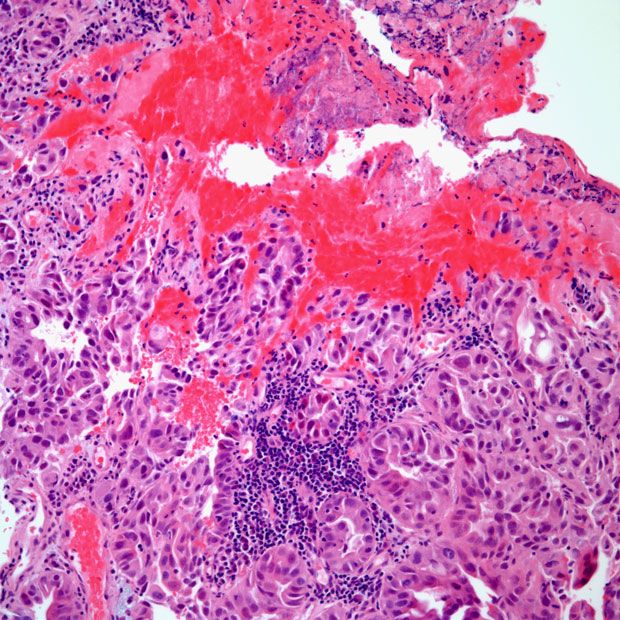GEN-001/Avelumab Elicits Positive Responses in Advanced Gastric/GEJ Cancer
Investigators say that they do not have any safety concerns regarding GEN-001 and avelumab in patients with advanced gastric or gastroesophageal junction adenocarcinoma.
Treatment with single-strand bacteria GEN-001 plus avelumab (Bavencio) resulted in a positive objective response rate (ORR) in patients with advanced gastric or gastroesophageal junction (GEJ) adenocarcinoma, according to a press release on a planned interim analysis of a phase 2 trial (NCT05419362).
Investigators are also evaluating GEN-001 in combination with pembrolizumab as a treatment for those with advanced biliary tract cancer in a phase 2 clinical trial.

In the trial, the regimen reached the pre-determined criteria for ORR, the study’s primary end point, and yielded no new safety signals among the first 21 enrolled patients. The trial’s independent data monitoring committee plans to advance to the second stage of the study without any modifications and enroll 21 additional patients. Moreover, investigators will present detailed results from the trial at a medical conference in the second half of 2023 and expect to share top-line data from the final analysis in the second half of next year.
“There is a strong unmet medical need to establish third line of therapy for patients [with gastric cancer or GEJ adenocarcinoma] compared with establishing first and second lines of therapy,” lead investigator Jeeyun Lee, MD, associate professor from the Hematology and Oncology Division at Samsung Medical Center, said in the press release. “Hence, the pre-planned interim result of this trial is quite interesting. We continue to enroll patients and look forward to seeing the final analysis of this trial soon.”
Investigators of the phase 2 trial are assessing the efficacy and safety of GEN-001 in combination with avelumab as a treatment for patients with PD-L1–positive gastric cancer or GEJ adenocarcinoma in the third-line setting and beyond regardless of prior immunotherapy treatment. Up to 50 patients will receive GEN-001 capsules orally that each contain at least 3x1011 colony-forming units plus 800 mg of avelumab intravenously once every 2 weeks.
Secondary end points for the trial include adverse effects, laboratory abnormalities, duration of response, progression-free survival, and overall survival. Microbiota will serve as another outcome measure.
Patients 19 years and older with histologically confirmed, unresectable, recurrent, locally advanced or metastatic gastric cancer or GEJ adenocarcinoma are eligible for enrollment on the trial. Additional eligibility criteria include having an ECOG performance status of 0 or 1, adequate organ function, documented radiographic or clinical disease progression after 2 or more previous lines of therapy, PD-L1–positive disease, at least 1 measurable lesion per RECIST v1.1 criteria, and an estimated life expectancy of at least 3 months.
Patients who have previously received T-cell coregulatory protein inhibitors or clinically significant evidence of ascites based on a physical exam are not eligible to enroll. Patients are also unsuitable for enrollment if they have known prior severe hypersensitivity to monoclonal antibodies or any component in their formulation, active autoimmune disease requiring systemic treatment in the past 2 years, or received a live vaccine within 4 weeks of beginning study treatment.
Prior solid organ or allogeneic stem cell transplantation, receipt of proton pump inhibitors within 2 weeks of beginning study treatment, active central nervous system metastases, and clinically significant cardiovascular disease are also grounds for exclusion from enrollment.
Investigators are also evaluating GEN-001 in combination with pembrolizumab (Keytruda) as a treatment for those with advanced biliary tract cancer in a phase 2 clinical trial. The first patient enrolled on the study is expected to begin treatment in the second half of 2023.
Reference
Positive results from interim analysis of 'GEN-001' plus avelumab (Bavencio®) phase II trial. News release. Genome & Company. May 19, 2023. Accessed May 22, 2023. prn.to/3q112l7